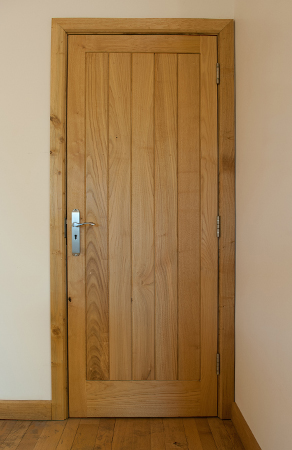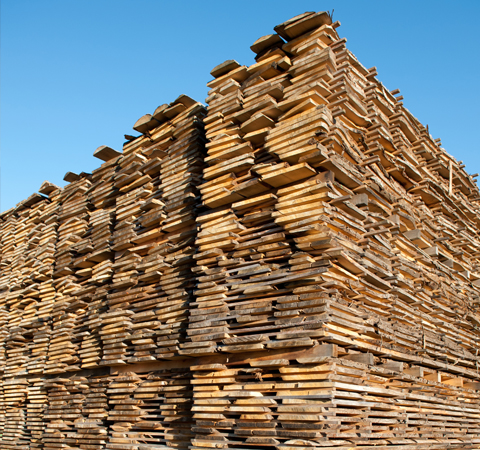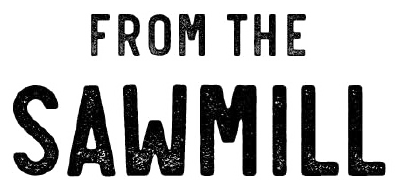English Sweet Chestnut Sawn Timber
Species
Astanea sativa
Source
England
Surface finish
Waney edge sawn boards
Sizes
Width range: 150mm – 250mm +

English Sweet Chestnut Sawn Timber

English Sweet Chestnut Sawn Timber
About English Sweet Chestnut Sawn Timber
Sweet chestnut trees were reputedly introduced into the British Isles by the Romans and they have flourished ever since. In many parts of southern Europe sweet chestnut is favoured over oak as a joinery timber because of its stability and mellow texture whereas in England its similarity to English oak has limited its popularity so it has remained a relatively under-utilised species.
Note: sweet chestnut should not be confused with horse chestnut (the conker tree) whose wood is white in colour and inferior for joinery purposes.
Appearance
Waney edge boards of sweet chestnut will be supplied with wane (bark) on one or two edges.
The sap wood is narrow and generally usable where a waney edge feature is desired. The heart wood is similar in appearance to oak but is paler and less coarse. The easy way to differentiate between English oak and sweet chestnut is that the latter does not display the flecks or silvery streaks of the medullary rays.
Sweet chestnut often develops chocolate brown streaks which rise up from the base of the tree to create an interesting contrast to the normal coloured wood.
Sweet chestnut trees suffer from ‘stress’ and as the boards often split up the middle after cutting they do not tend to be particularly wide.
Call us to discuss your project
Technical Specification
| Common name | Sweet Chestnut | |||||||||
| Other names | Spanish Chestnut | |||||||||
| Family | Fagaceae | |||||||||
| Genus | Astanea sativa | |||||||||
| Unit of sale | M3 (Cubic meters) (1M3 = 35.315 Ft3) | |||||||||
| Kiln dried weight | Approx 560 KG / M3 | |||||||||
| Specification | Supplied in waney edge sawn boards Width range: 150mm – 250mm + |
|||||||||
| Dimensions |
|
|||||||||
| Moisture content |
|
|||||||||
| Durability | BS EN350-2. Sweet chestnut is classed as durable and does not require treatment for external use as long as the sap is excluded. | |||||||||
| Workability | + Easy to work. Stable – Contains tannin |
|||||||||
Grading
Sweet chestnut is available in the following grades but please note that not all thicknesses are available in all the grades:
First Joinery
This is our standard joinery grade where only occasional knots up to 40mm diameter are accepted. The grain may be slightly angled and some colour variation is likely. Large knots and defects will be measured out. Brown mineral streak is not considered a defect. Centre splits are accepted but a suitable reduction in measure will be applied. Accepted: Grain deviation, occasional knots up to 40mm, brown colouring. Other isolated defects if measured out. Not accepted: Curly grain, orange rot, black stain, ring shake, bark pockets, excessive worm attack.
Disclaimer
While the utmost care has been taken to provide accurate information, Vastern Timber shall not be held responsible for any consequences arising from any errors or omissions on this website nor for any damages resulting from the use of the information.



